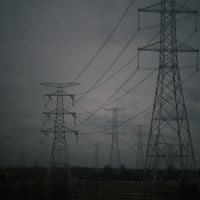In recent years, the urgency of addressing climate change has propelled the conversation around renewable energy to the forefront of global discourse. Among the various renewable energy sources, solar power stands out due to its accessibility and potential for scalability. Non-Governmental Organizations (NGOs) play a pivotal role in facilitating solar projects, particularly in underserved communities where energy access is limited.
However, the successful implementation of these initiatives often hinges on securing adequate funding. This is where donor support and crowdfunding come into play, providing essential financial resources that can transform ambitious solar projects into reality. Donor support typically comes from philanthropic organizations, government grants, and corporate social responsibility initiatives.
These funds can be substantial and often come with the added benefit of expertise and networking opportunities. On the other hand, crowdfunding has emerged as a powerful tool for grassroots fundraising, allowing individuals and small organizations to pool resources for specific projects. By leveraging both donor support and crowdfunding, NGOs can create a robust financial foundation for solar initiatives, ensuring that they not only launch but also sustain their efforts over time. Are You Working on Solar Innovation or Clean Energy Access? Join us to receive updates.
Key Takeaways
- Donor and crowdfunding support play a crucial role in advancing solar projects, especially when led by NGOs.
- NGOs are key players in sustainable energy projects, leveraging their expertise and networks to drive impactful initiatives.
- Donor support for solar projects brings about numerous benefits, including increased access to clean energy and economic empowerment.
- Crowdfunding has the potential to significantly contribute to the success of solar initiatives, tapping into a wider pool of supporters.
- Case studies of successful NGO-led solar projects showcase the potential for combining donor and crowdfunding support to drive impactful change.
Understanding the Role of NGOs in Sustainable Energy Projects
NGOs are uniquely positioned to bridge the gap between communities in need and the resources required to implement sustainable energy solutions. Their deep-rooted connections within local communities enable them to identify specific energy needs and tailor solar projects accordingly. This localized approach ensures that the solutions provided are not only technically feasible but also culturally acceptable and economically viable.
NGOs often serve as advocates for policy changes that promote renewable energy adoption, working closely with governments and other stakeholders to create an enabling environment for solar projects. Moreover, NGOs bring a wealth of experience in project management, community engagement, and capacity building. They are adept at mobilizing volunteers and local resources, which can significantly reduce project costs.
By fostering partnerships with local businesses and educational institutions, NGOs can enhance the sustainability of solar projects through training programs that empower community members to maintain and operate solar systems independently. This holistic approach not only addresses immediate energy needs but also contributes to long-term economic development and resilience.
The Benefits of Donor Support for Solar Projects

Donor support is crucial for the success of solar projects, particularly in regions where financial resources are scarce. One of the primary benefits of securing donor funding is the ability to access larger sums of money that can cover initial capital costs, which are often a barrier to entry for many communities. Donors can provide grants that do not require repayment, allowing NGOs to invest in high-quality solar technology without the burden of debt.
This financial flexibility enables organizations to focus on project implementation rather than financial constraints. Additionally, donor support often comes with added value beyond just funding. Many donors have extensive networks and expertise in renewable energy that can be leveraged to enhance project outcomes.
For instance, donors may offer technical assistance or connect NGOs with industry experts who can provide guidance on best practices in solar technology deployment. Furthermore, having reputable donors associated with a project can enhance its credibility, attracting further interest from other potential funders and stakeholders.
Exploring the Potential of Crowdfunding for Solar Initiatives
Crowdfunding has revolutionized the way projects are financed, democratizing access to capital by allowing individuals to contribute small amounts toward a common goal. For solar initiatives, crowdfunding presents a unique opportunity to engage a broader audience in the mission of promoting sustainable energy. Platforms like Kickstarter, GoFundMe, and Indiegogo have made it easier than ever for NGOs to showcase their projects and attract funding from people who are passionate about renewable energy.
One of the key advantages of crowdfunding is its ability to create a sense of community around a project. When individuals contribute to a solar initiative, they often feel a personal connection to its success. This emotional investment can lead to increased advocacy and support for the project beyond just financial contributions.
Additionally, crowdfunding campaigns can serve as valuable marketing tools, raising awareness about the importance of solar energy and inspiring others to take action in their own communities.
Case Studies of Successful NGO-led Solar Projects
To illustrate the potential of donor and crowdfunding support for solar projects, it is helpful to examine real-world examples where NGOs have successfully implemented such initiatives. One notable case is SolarAid, an NGO that has made significant strides in providing affordable solar lighting solutions in rural Africa. Through a combination of donor funding and crowdfunding campaigns, SolarAid has distributed over 1 million solar lights, improving access to electricity for countless families while reducing reliance on kerosene lamps.
Another inspiring example is the work of Barefoot College in India, which trains women from rural communities to become solar engineers. The organization has successfully funded its initiatives through a mix of donor support from international foundations and crowdfunding efforts that engage local communities and diaspora networks. By empowering women with skills in solar technology, Barefoot College not only addresses energy poverty but also promotes gender equality and economic empowerment.
Strategies for Combining Donor and Crowdfunding Support

To maximize funding opportunities for solar projects, NGOs should consider strategies that effectively combine donor support with crowdfunding efforts. One approach is to use donor funding as a matching mechanism for crowdfunding campaigns. For instance, an NGO could secure a commitment from a donor to match every dollar raised through crowdfunding up to a certain limit.
This not only incentivizes individual contributions but also demonstrates to potential backers that there is already significant investment in the project. Another strategy involves leveraging storytelling to appeal to both donors and crowdfunding supporters. By sharing compelling narratives about the communities impacted by solar projects, NGOs can create emotional connections that resonate with both audiences.
Engaging visuals, testimonials from beneficiaries, and clear explanations of how funds will be used can enhance the effectiveness of both fundraising approaches.
Engaging Donors and Crowdfunding Supporters in Solar Project Development
Engagement is key when it comes to maintaining relationships with donors and crowdfunding supporters throughout the lifecycle of a solar project. Regular updates on project progress can help keep supporters informed and invested in the initiative’s success. This could include sharing milestones achieved, challenges faced, and stories from beneficiaries whose lives have been transformed by access to solar energy.
Moreover, involving supporters in project development can foster a sense of ownership and commitment. For example, NGOs could invite donors and crowdfunding backers to participate in site visits or community events related to the project. This not only strengthens relationships but also provides valuable opportunities for supporters to witness firsthand the impact of their contributions.
Overcoming Challenges in Leveraging Donor and Crowdfunding Support
While donor support and crowdfunding present significant opportunities for financing solar projects, NGOs may encounter challenges in leveraging these resources effectively. One common hurdle is competition for funding; as more organizations turn to crowdfunding platforms, standing out among numerous campaigns can be difficult. To address this challenge, NGOs must invest time in crafting compelling narratives that highlight their unique value propositions and demonstrate their track record of success.
Additionally, managing expectations is crucial when working with both donors and crowdfunding supporters. Clear communication about project timelines, potential risks, and expected outcomes can help mitigate misunderstandings and build trust. Establishing transparent processes for fund allocation and reporting can further enhance credibility and foster long-term relationships with supporters.
Ensuring Transparency and Accountability in Solar Project Funding
Transparency and accountability are essential components of successful fundraising efforts for solar projects. Donors and crowdfunding supporters want assurance that their contributions will be used effectively and responsibly. NGOs should establish clear financial reporting mechanisms that outline how funds are allocated across different aspects of the project—from equipment purchases to community training programs.
Regular updates on project progress should also include financial transparency reports that detail expenditures and highlight any deviations from initial budgets or plans. By fostering an environment of openness, NGOs can build trust with their supporters while demonstrating their commitment to responsible stewardship of funds.
Maximizing Impact: Monitoring and Evaluating Solar Projects Supported by Donors and Crowdfunding
To ensure that solar projects achieve their intended outcomes, NGOs must prioritize monitoring and evaluation (M&E) processes throughout the project lifecycle. Establishing clear metrics for success—such as the number of households served or reductions in carbon emissions—can help organizations assess their impact effectively. Engaging donors and crowdfunding supporters in M&E efforts can also enhance accountability while providing valuable insights into project performance.
Furthermore, sharing evaluation results with supporters not only demonstrates transparency but also highlights the tangible impact of their contributions. This feedback loop can encourage continued support for future initiatives while fostering a culture of learning within the organization.
The Future of NGO-led Solar Projects with Combined Support
As the world continues to grapple with climate change and energy poverty, NGO-led solar projects represent a beacon of hope for sustainable development. By harnessing both donor support and crowdfunding resources, organizations can create innovative solutions that empower communities while promoting renewable energy adoption. The combination of these funding mechanisms not only enhances financial sustainability but also fosters community engagement and ownership.
Looking ahead, it is essential for NGOs to continue refining their strategies for leveraging donor support alongside crowdfunding efforts. By prioritizing transparency, accountability, and effective communication with supporters, organizations can maximize their impact while contributing to a cleaner, more equitable energy future for all. The journey toward sustainable energy access is ongoing; however, with collaborative efforts from donors, crowdfunding supporters, and NGOs alike, we can pave the way for transformative change through solar power initiatives worldwide.









































